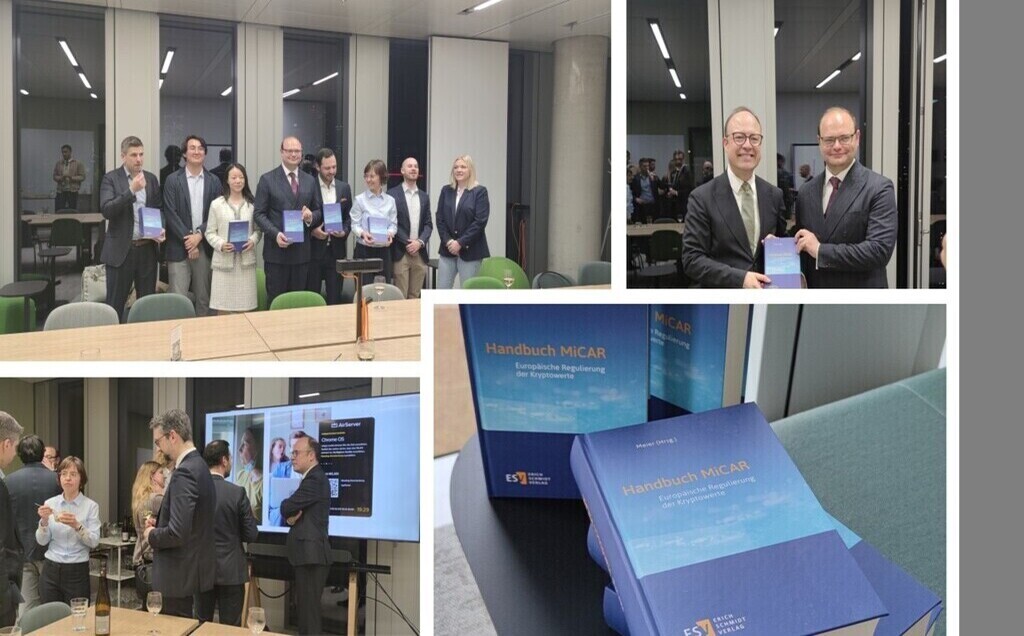As of 2020 the German legislator is going to introduce crypto assets into the German Banking Act (KWG) as a new form of financial instruments and crypto custody services as a new form of financial service which is subject to authorization. Basis for these legal innovations is the amending directive to the fourth European Anti-Money Laundering Directive commonly known as the fifth AML Directive. While transposing the directive into national law, the German legislator exceeded the directive’s requirements. According to the wording, the directive requires the member states to introduce a definition for virtual currencies rather than for crypto assets and the introduction of a financial service such as the crypto custody service, which is subject to authorization, is also not explicitly required by the directive. With regards to virtual currencies, the focus of the EU directive was to subject service providers that are either engaged in exchange services between virtual currencies and fiat currencies or that provide custodian wallets for virtual currencies to the AML regulations of the member states. The EU legislator wanted the aforementioned service providers especially to be obliged to verify their customers identity via the so called Know-Your-Customer (KYC) procedure. Further on, the directive should ensure that the service providers implement sufficient risk management and adequate documentation procedures. But which businesses are now subject to the German Money Laundering Act (GWG) since the German legislator did not transpose the provisions of the fifth AML Directive literally?
CRYPTO EXCHANGES WERE SUBJECT TO THE GERMAN AML ACT EVEN BEFORE THE TRANSPOSITION OF THE FIFTH AML DIRECTIVE
In contrast to the other EU member states, Germany officially defined most cryptocurrencies already since 2013 as financial instruments as defined in the KWG, because BaFin stated early that they qualify Bitcoins and comparable cryptocurrencies as units of account and therefore as financial instruments according to the KWG. The regulation of units of account, such as special drawing rights of the International Monetary Fund or the predecessor of the euro, the “European Currency Unit” (ECU), are specific features of the German banking regulatory law and are not intended by the European directives. The qualification of cryptocurrencies as units of account results in the fact that the commercial exchange of cryptocurrencies, under certain circumstances, is qualified as a financial service, so that the service providers qualify as financial service institutions and therefore are subject to BaFin authorization long before the transposition of the provisions of the fifth European AML Directive into German law. According to the GWG, all financial service institutions are obligated to identify and verify customers via KYC procedure, implement a risk management for prevention of money laundering, notify the competent authorities when suspicion of money laundering arises and fully and adequately document these procedures. Crypto exchanges in Germany therefore had to fulfill the GWG requirements long before the transposition of the fifth European AML Directive came into effect. In addition to that, they are obligated to obtain BaFin authorization if they intend to offer their services in Germany on a commercial scale.
CRYPTO CUSTODY SERVICES WILL BE SUBJECTED TO THE GERMAN AML ACT IN 2020
Crypto custody services were not subject to authorization prior to the transposition of the fifth European AML Directive in Germany. The KWG did not qualify the custody of units of account as a service that is subjected to authorization. Providers of custody services for cryptocurrencies or other virtual currencies therefore could offer their services without prior BaFin approval. They were considered as unregulated service providers and not as financial service providers and consequently were also not subjected to the regulations of the GWG. This changes with the introduction of the crypto custody service as a financial service. As of 2020, service providers that safeguard crypto assets for customers on a commercial scale will be qualified as financial service institutions and will therefore have to comply with the provisions of the GWG as well.
WHAT ABOUT OTHER BUSINESSES WITH CRYPTO RELATED BUSINESS MODELS?
Not only crypto exchanges and crypto custody service providers are already or will be obligated to fulfill the GWG requirements as of the year 2020. Since units of account and the soon to be introduced crypto assets are financial instruments according to the KWG, businesses that intend to offer either purchase and selling services, commission services or advisory services regarding these financial instruments on a commercial scale will in many cases be regulated as financial service institutions or even as banks and will therefore be obligated to fulfill the AML requirements of the GWG.
Attorney Lutz Auffenberg, LL.M. (London)
subscribe to Newsletter






